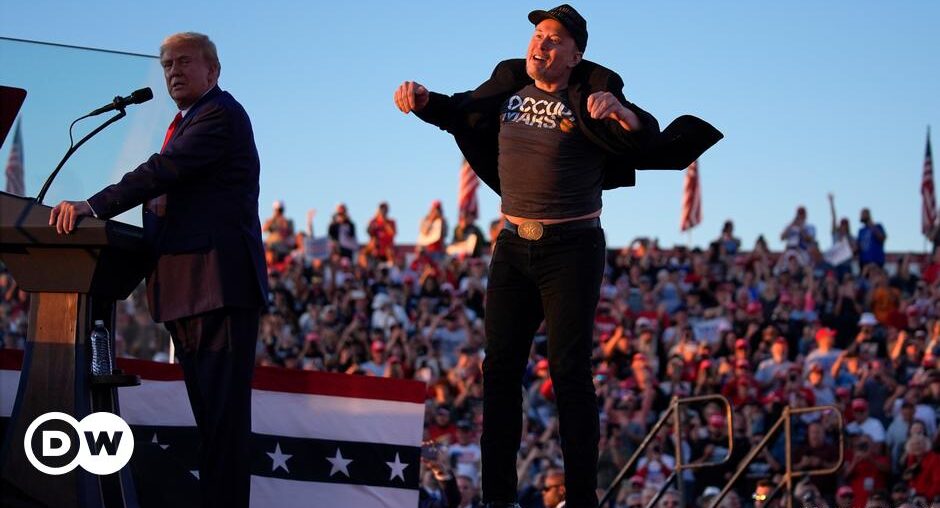The way the world’s richest man, Elon Musk, is getting involved in US politics shows how billionaires with control over social media can influence public opinion and potentially sway elections.
“Since Elon Musk took over X, the platform has devolved into a hellscape of hate and disinformation — much of which comes from Mr. Musk himself,” Imran Ahmed, head of the Center for Countering Digital Hate (CCDH), told DW.
Unlike most tech billionaires and political donors, Musk’s political involvement is highly visible and has intensified ahead of the US presidential election on November 5. A recent CCDH report
Musk’s role as a source of mis- and disinformation extends beyond his own posts. He frequently retweets or engages with false and misleading claims and conspiracy theories, and his engagement gives these posts an immense reach.
Here are three examples of how Musk is spreading false claims ahead of the US election.
1: False narratives about migrants voting
Claim: In July, US Republican House Speaker Mike Johnson suggested Democrats “want to turn illegal aliens into voters.” Musk retweeted
DW fact check: False
Only US citizens can vote in US federal elections. “Noncitizens, including permanent legal residents, cannot vote in federal, state and most local elections,” a statement on USA.gov, an official US government website, explains. Federal law strictly prohibits noncitizens from voting in US presidential elections.
Musk has also stated
Still, Musk’s post was viewed nearly 20 million times and was shared tens of thousands of times.
Under US immigration law,
2: Posting fake pictures of Kamala Harris
Claim: In early September, Musk posted
DW fact check: Fake.
This is not a real image of Harris. The photo was generated by artificial intelligence, as revealed by the sharpness of Harris’ image against a blurred background and the unusually bright colors. An advanced AI image detector tool like truemedia.org
Sander van der Linden, a professor at the University of Cambridge in the UK and author of “Foolproof: Why Misinformation Infects Our Minds and How to Build Immunity” told DW that misinformation erodes the quality of democratic discourse, lowers trust in the electoral process and outcome “and for some people can even change the way they vote.”
With a net worth over $263 billion (€242 billion)
Since acquiring Twitter two years ago and rebranding it as X, Musk has done things like reinstate
3: Questioning the electoral process
Musk has amplified claims that there is something wrong with voter rolls in Michigan, an important swing state. The original claim — that Michigan has more voters than residents eligible to vote — has been debunked by Michigan’s Election Fact Center
Claim: Musk doubled down in mid-October
DW fact check: Misleading.
Under state
“Michigan has done more in last five years to improve the accuracy of our voter rolls than in the previous two decades,” the state says on its election information website
What motivates Musk?
Musk and Trump have a complex relationship. During Trump’s 2016 campaign, Musk publicly questioned
Van der Linden, at the University of Cambridge, thinks Musk believes a Trump victory would be in the best interests of his business. It might include “potentially more contracts from NASA for SpaceX, more federal contracts for Starlink, and free range to run X however he wants without government oversight of social media companies,” he said.
Michael Schlegel of BR24 contributed to this piece.
Edited by: Joscha Weber, Sarah Steffen

